Welcome to our comprehensive guide on crafting effective quality assurance feedback letters! Whether you're a manager looking to provide constructive criticism or a team member sharing insights on a colleague's performance, writing clear and impactful feedback is crucial. This article will equip you with the essential elements and best practices for creating letters that not only convey your message but also foster growth and improvement. So, let's dive in and explore how to make your feedback resonateâkeep reading to unlock valuable tips and a handy template!

Clear and Concise Language
Quality assurance feedback emphasizes the importance of clear and concise language in communication. Effective communication is vital in environments such as healthcare or manufacturing, where misunderstandings can lead to significant repercussions, such as errors in patient care or product defects. Precision in language reduces ambiguity, allowing for swift comprehension of processes, standards, and protocols. For instance, in the pharmaceutical industry, clarity in documentation affects not only compliance with regulatory requirements but also impacts patient safety and product efficacy. Regular training on effective communication techniques should be integrated into quality assurance programs to ensure all employees can deliver messages succinctly and accurately, fostering a culture of quality and accountability.
Specific Issues and Observations
Quality assurance feedback often highlights specific issues and observations that can significantly impact product integrity and customer satisfaction. For instance, in the automotive industry, a noticeable fault in the braking system may arise during routine inspection, revealing issues such as improper alignment or worn brake pads that can lead to decreased stopping power. In software development, a critical observation might include bugs causing application crashes on devices running Android 12, affecting a large user base and resulting in negative reviews. Additionally, in food manufacturing, contamination risks from inadequate sanitation practices in the packaging area could jeopardize product safety and adhere to FDA regulations. Each detailed observation helps drive improvements, ensuring compliance with industry standards and enhancing overall quality.
Constructive Suggestions for Improvement
Constructive suggestions for improvement in quality assurance processes can significantly enhance product reliability and customer satisfaction. Regular audits (conducted quarterly) of procedures can identify inefficiencies in workflow. Training sessions (at least biannually) for staff on new quality standards, such as ISO 9001, can increase awareness and adherence to best practices. Implementing a feedback loop system, where employees can report process issues anonymously, may foster a culture of continuous improvement. Utilizing data analytics tools to track defect rates (aiming for a reduction of 10% annually) can provide actionable insights into problem areas. Regular team meetings (scheduled monthly) to review quality metrics and brainstorm solutions can encourage collaboration and accountability among team members.
Express Gratitude and Positive Acknowledgements
Effective quality assurance feedback fosters a culture of continuous improvement within organizations. Recognizing exceptional work contributes to employee motivation and enhances overall team performance. Providing specific examples, such as achievements in reducing error rates (by 20% in Q2) or successfully meeting tight deadlines on critical projects, builds a strong foundation for constructive dialogue. Acknowledging contributions in high-stakes environments, like product launches or safety-critical operations, reinforces the company's commitment to excellence. Constructive feedback should also highlight areas for growth while maintaining a positive tone to encourage engagement and collaborative problem-solving. Fostering a supportive environment cultivates respect and drives the success of future initiatives.
Contact Information for Further Queries
Quality assurance reviews play a crucial role in maintaining product standards and efficient operational processes within organizations. These assessments often highlight essential elements such as compliance with industry regulations, adherence to safety protocols, and overall product reliability. Feedback resulting from quality assurance procedures can significantly improve production methods, leading to enhanced customer satisfaction. In instances where further clarification or inquiries arise, establishing clear contact information is vital--ensuring stakeholders can easily reach out to designated quality assurance personnel. Including relevant phone numbers, email addresses, and office locations fosters open communication and swift resolution of any issues, contributing to a culture of continuous improvement.
Letter Template For Quality Assurance Feedback Samples
Letter template of quality assurance feedback for compliance verification
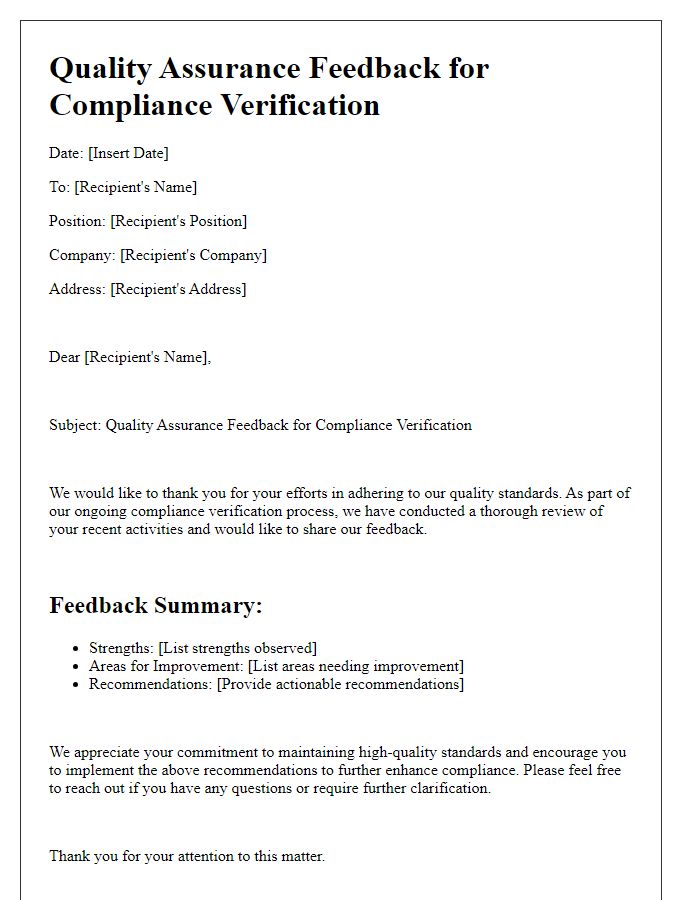
Letter template of quality assurance feedback for operational efficiency
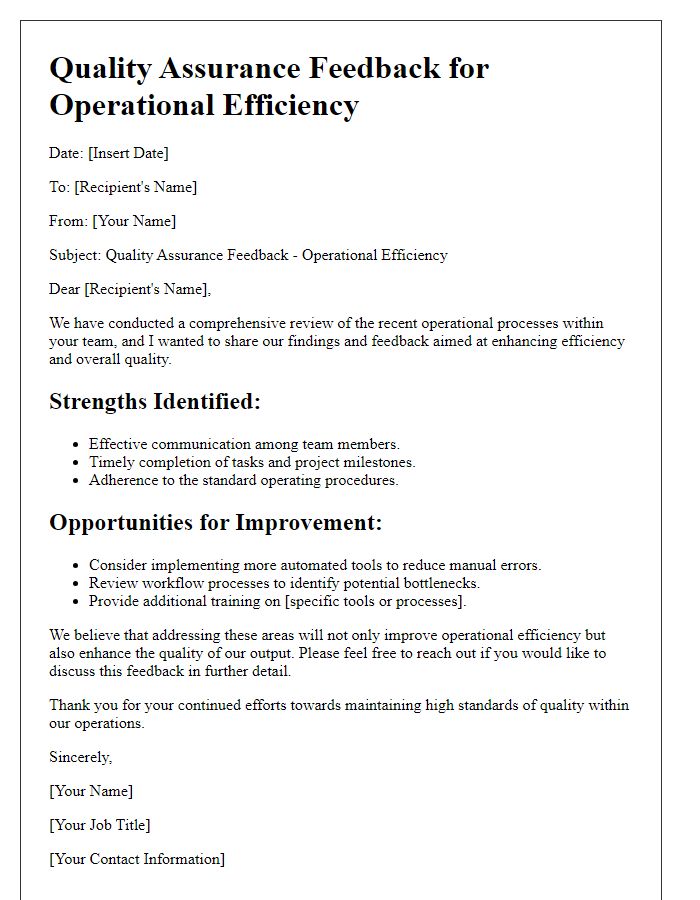

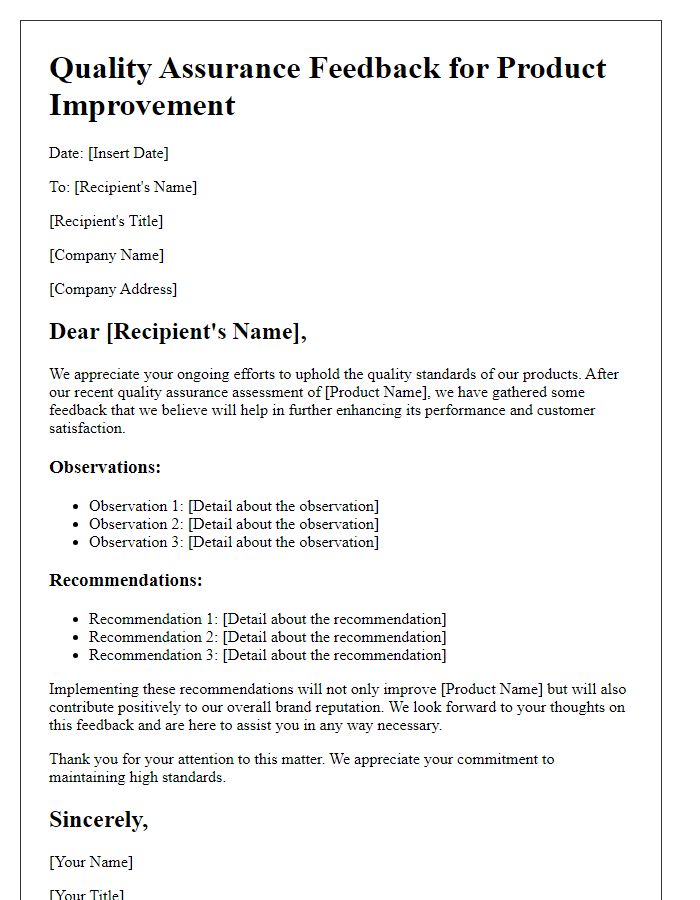
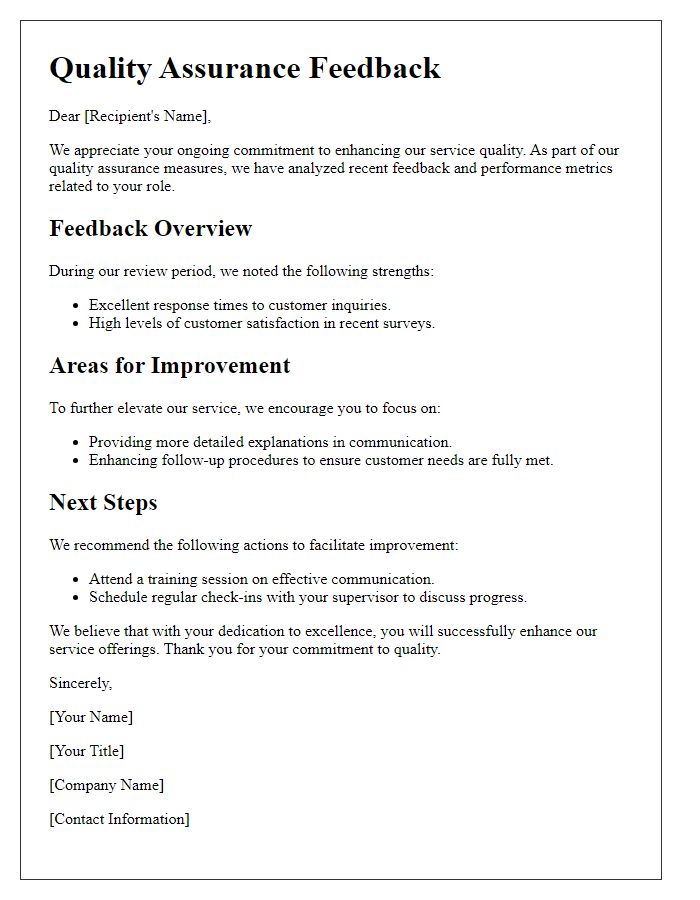
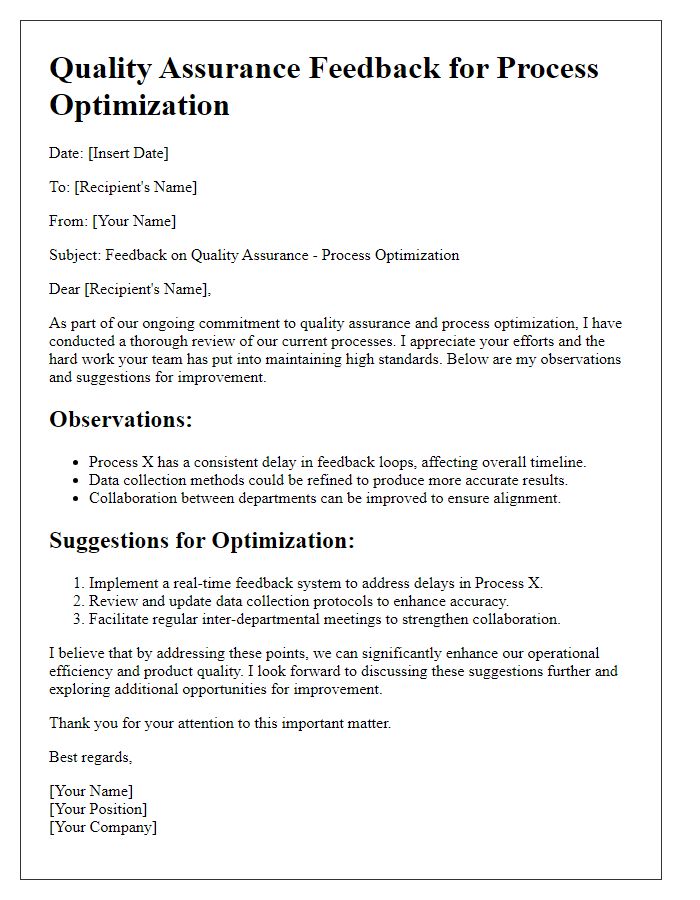
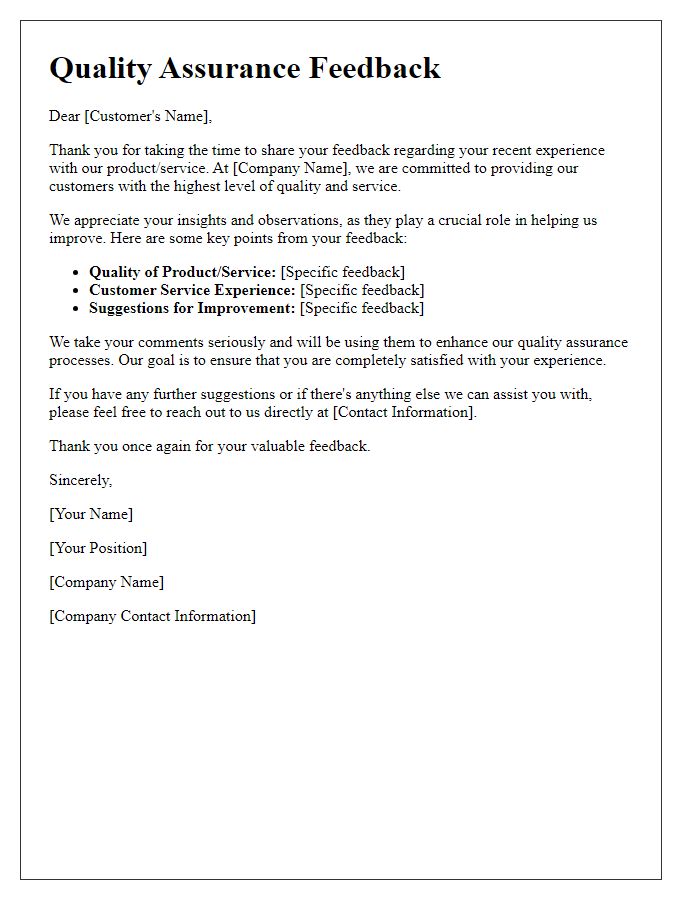
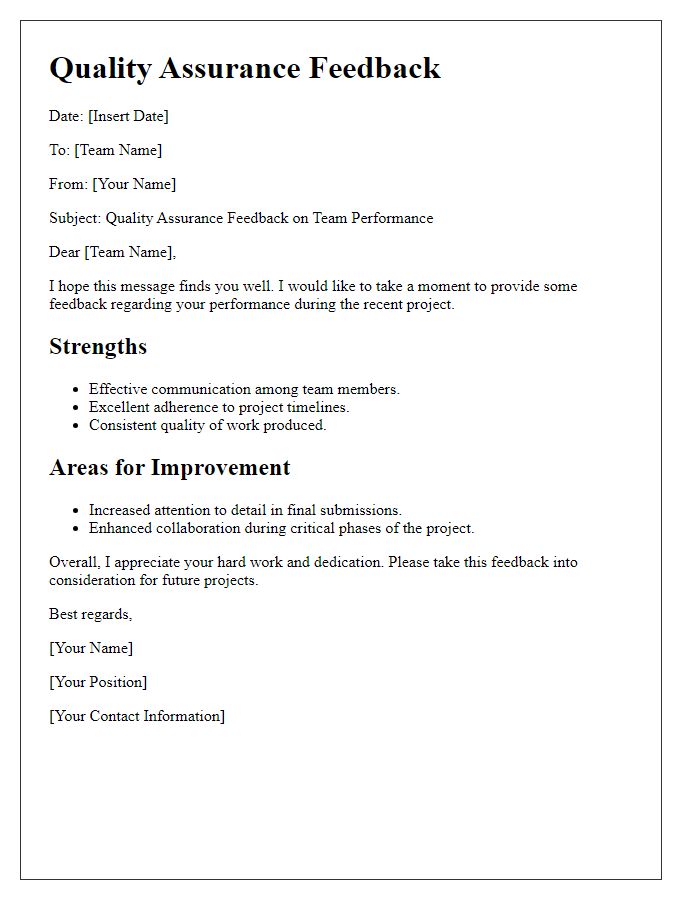
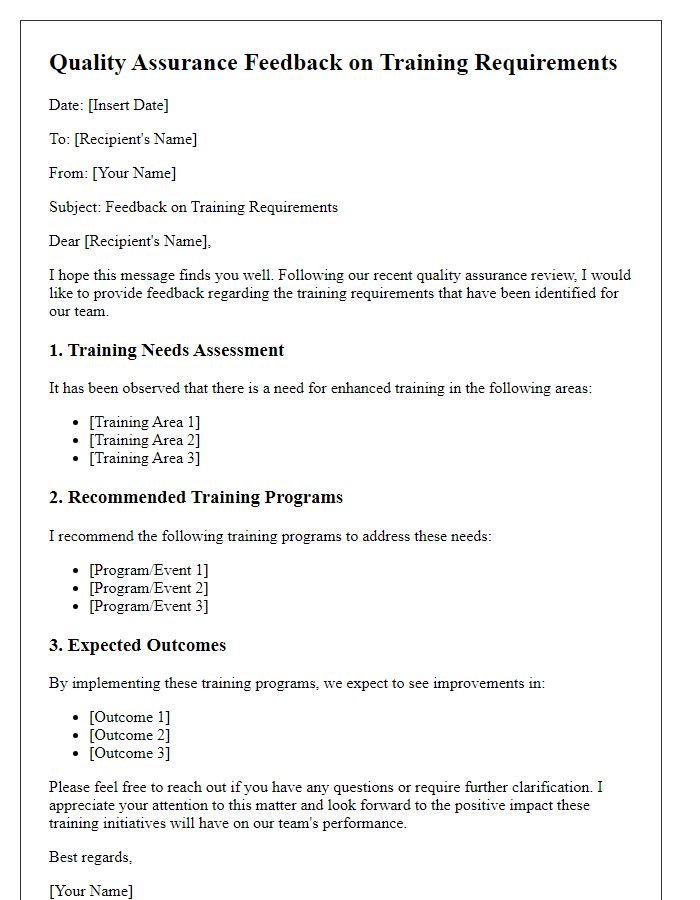
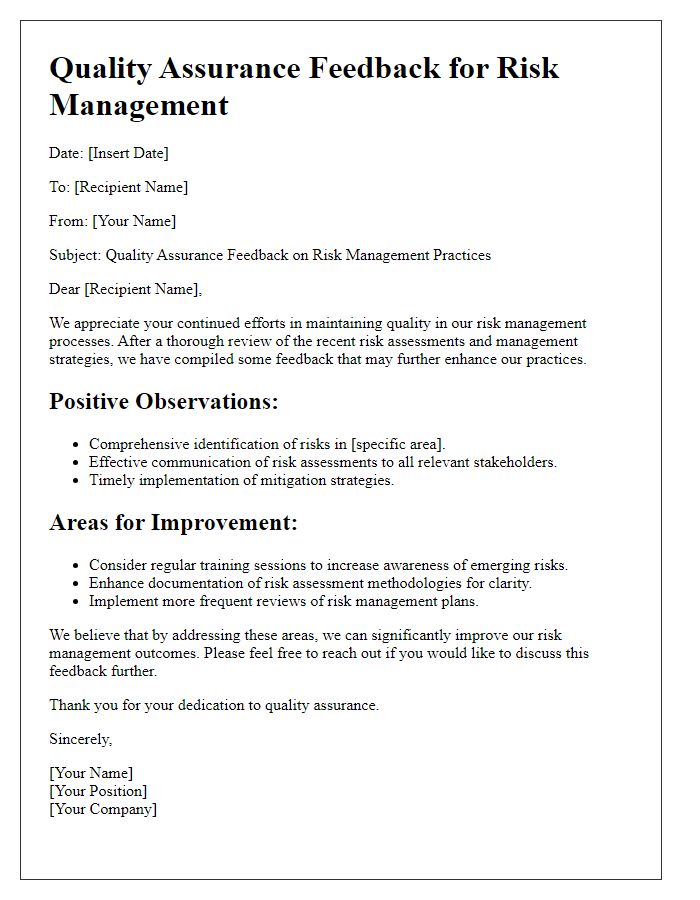
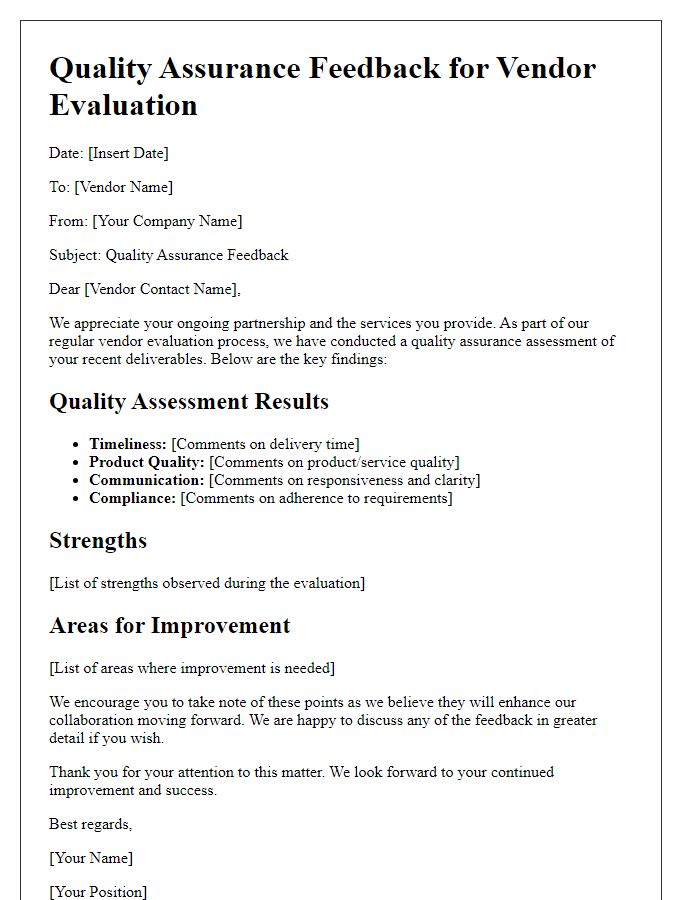


Comments